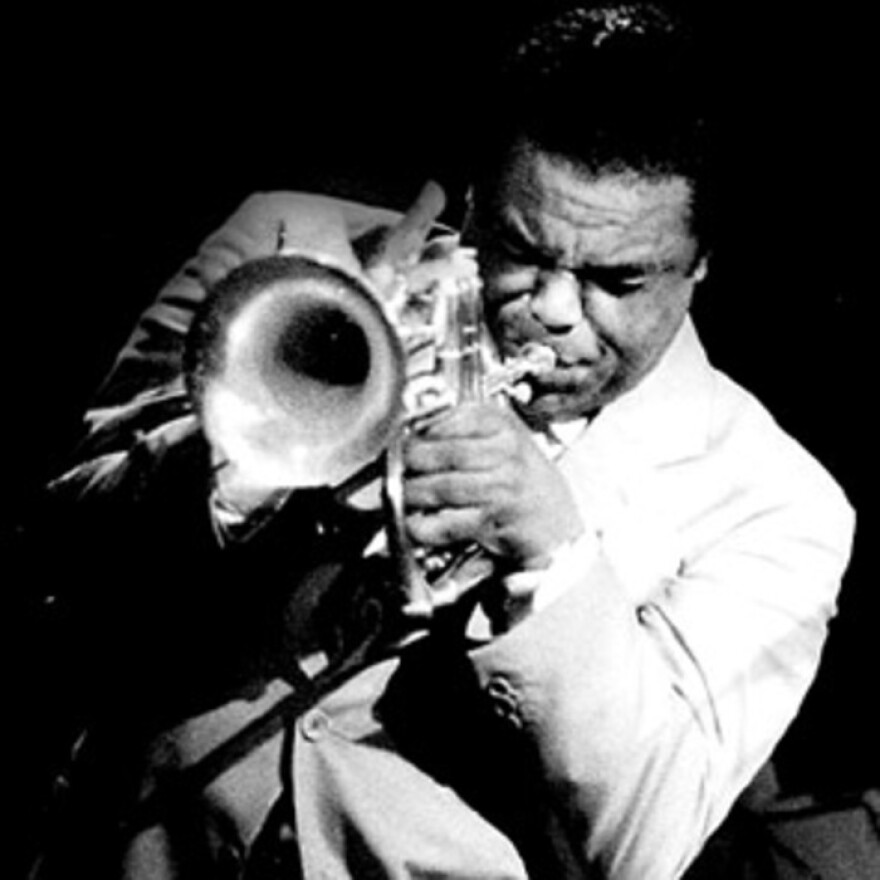Freddie Hubbard: I thought it was the worst place in the world. I was there in 1958 in the Bronx. It was like the Black boy jungle. I looked out that window for about five weeks. I was scared to go in the street, man, because I would look out the window and see people getting robbed and beatings, but I finally got up enough nerve to go out there and get on the subway.
Nick Spitzer: Now, you landed in New York, and even though you're coming from a smaller Midwest city, and you see it as ki-
FH: The building's scary.
NS: Yeah, everything scares you, but yet, you're landing in the middle of this great period when Blue Note Records has got so many things going. You end up playing with McCoy Tyner, Philly Joe Jones, Dexter Gordon, Jackie McLean. I mean, they're like the New York Yankees of jazz. You're on the team!
FH: Yeah, I was a lucky man, but, you know, I got with those guys. I would follow them around different clubs, and they'd look up and say, "Man, what are you doing here? What are you wanting now?" I was like an eager beaver, you know? And some of them got tired of me because I was coming around all the time trying to get in free and all that, but they liked me for some reason.
[music]
NS: Herbie Hancock is somebody that really is in your age bracket, and you worked on his two great albums, those early records, Maiden Voyage and Empyrean Isles. Your trumpet adds so much to the mood of what those records is.
FH: Herbie's great, man. That's one of the few cats that seem like everything I've done, he's on it.
[music]
NS: Tell me a little bit about your family, and the music in your family that maybe led you to become a performer.
FH: I grew up in Indianapolis, Indiana. I had a sister who played trumpet; she played classical trumpet, and she could play it. I had a brother who played piano, and he was a Bud Powell fanatic. He played all these records when I was young, around the house all day. Bud, Charlie Parker, and all these records. I heard this music when I was very young, but I couldn't understand it. And he told me, he said, "Man, you got to wait a little while, you don't know the changes." So, I kind of developed my pitch, so I almost had perfect pitch. I could hear all the chords, and I started playing along with them.
[music]
NS: Freddie, so much of the music that you made in the '60s comes along at the great period of the Civil Rights Movement emerging, people leading, trouble coming out, the police, you know, Selma, Montgomery. Did you ever meet Martin Luther King?
FH: No, I wish I could've, man, but the night he got killed I was supposed to take Miles' place over there in Brooklyn, and I was in this club, man, all of a sudden, man, fire, engines, I mean, you know, people were burning up. I said, "What's going on out here?" They said, “They just shot Martin Luther King!" Guests are running in the club with TVs and horns and all kinds of stuff, but I felt as though if I just treated people good and learned how to get around them and let them know how I felt, and be able to get along with people, then I would be doing more because I'm not a spokesman, I mean, as far as politics.
NS: Just by playing your music though it seems to me you kept alive a dream of freedom and an ability to help people deal with their issues.
FH: We’re supposed to play music that enlightens a lot of people. I try to play music for everybody, I mean all races.
To hear the full program, tune in Saturdays at 5 and Sundays at 6 on WWNO, or listen at americanroutes.org.



